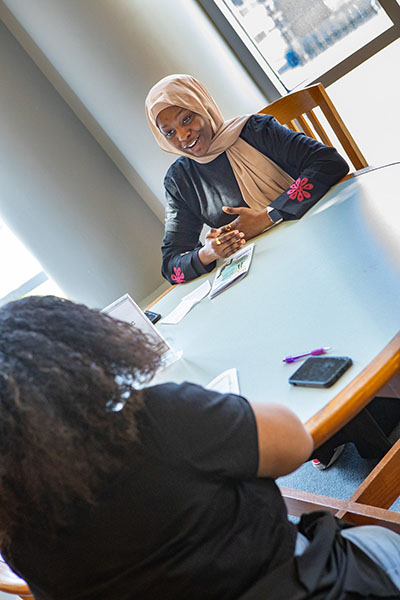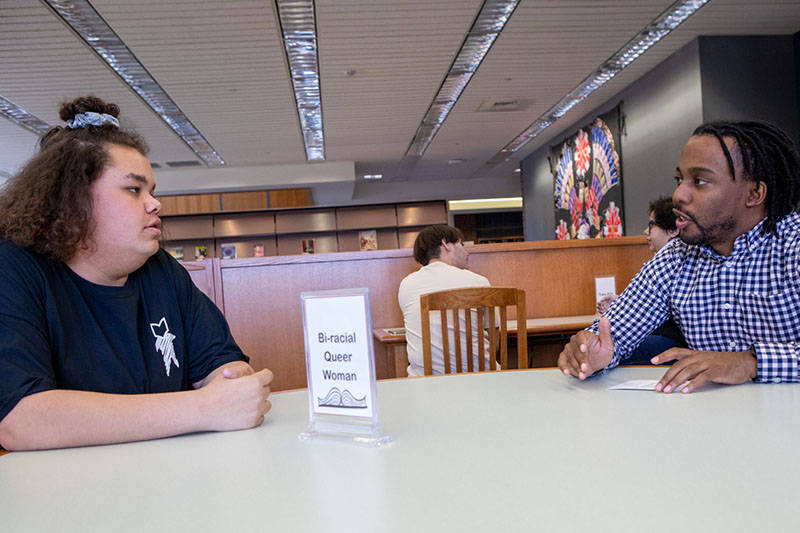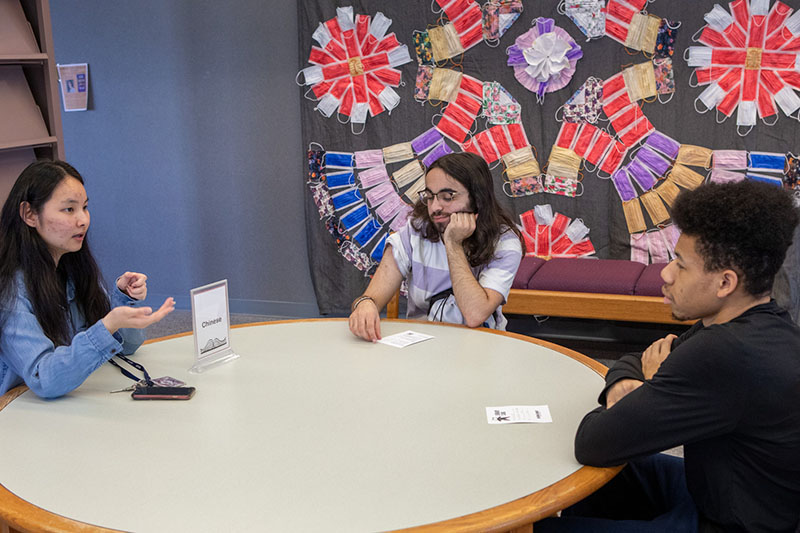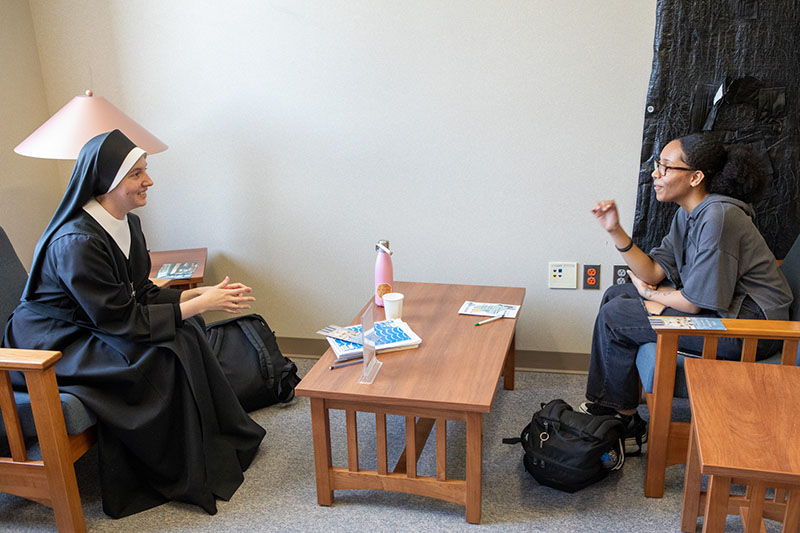- Apply
- Visit
- Request Info
- Give
Individuals present as 'books' at Human Library
Written by Noel Teter
Published on April 17, 2023
Eastern Connecticut State University’s J. Eugene Smith Library recently provided students with an opportunity to learn about social issues in a more intimate way than reading about them. The Human Library was available for “check-out,” or conversations, on April 11.
The Human Library’s collection consisted of 23 “books,” with students and faculty volunteering to share information about a topic of their choice. At least 101 conversations took place. Topics included gay marriage, socializing on the autism spectrum, being a police officer, being a nun, being Chinese, being Jewish, being a bi-racial queer woman and several more.
Last year, there were only 13 books open for discussion at the event, said Angela Walker, reference and instruction librarian. Most people participated again this year, highlighting what Walker called a “growing collection.” Walker also witnessed "books" reading other "books," and she talked to four “books” herself.

"Through unique conversations, readers learned about others’ life experiences and/or felt validated and supported in their own identity," said Walker.
Many book presenters responded to an anonymous survey to assess their motivation to participate in the event. They cited reasons such as serving as a “source of education to the campus community,” getting to know “the humans behind the stories and the labels,” and “helping others heal from trauma.”
Those who participated as books had several important takeaways from the event. One presenter came to realize that “these open and vulnerable conversations are so important for us to connect and understand one another as human beings.”
Another book presenter was surprised: “I didn’t think my book would make it off the shelf much, but it did. More young people were interested in my experience than I thought.”
Readers were also surveyed about their experiences and what they learned. “I learned that I'm not alone and other people have the same experiences as me,” said one “reader.”
Several participants became aware of the event by seeing posters on the walls of the library. Student Megan Hayes was one of these: “I want to meet more people and open myself up and being vulnerable is a good way to accomplish that,” she said.
“A lot of (the event’s purpose) is breaking down stereotypes,” she said.
Student Chloe D’Andrea was also inspired to participate after seeing a poster. D’Andrea, a criminology major, wanted to educate people on the current state of mental health rehabilitation systems. “Not many people know what mental facilities are like besides what’s shown in movies,” she said.





